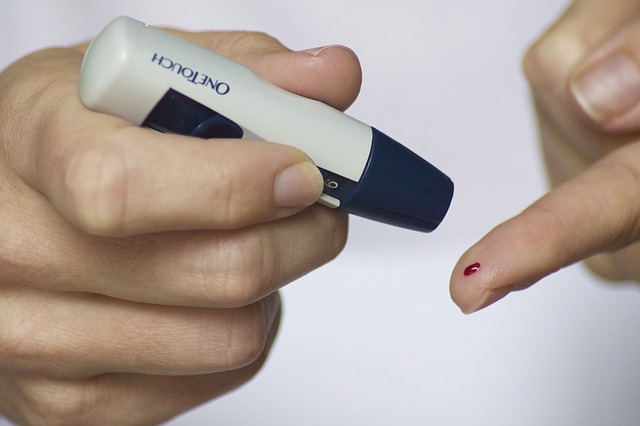Diabetes: One of the most serious health Problems in USA
Diabetes is one of the most serious health problems in America. There are several types of Diabetes, but the most common is Type 2 Diabetes. Almost 25 million Americans are diabetic and many don’t even know they have it. By 2035, researchers believe, that number will jump to approx. 25 million.
Reasons For Developing Type 2 Diabetes
There are many reasons why people develop Type 2 Diabetes. Eating the wrong foods, lack of exercise, obesity, and even getting older. That is the bad news, but, there is good news for those with Diabetes and those, who have pre-diabetes.
Diabetes is not curable,yet. There are thing that a Type 2 diabetic or pre-diabetic can do, to prevent and better manage their diabetes. It is a matter of making small changes in your lifestyle and pro-active.
How Can Diabetes Be Prevented And Controlled
Here is a list of things, you can do. Small changes can make differences in your life. Remember first and foremost, discuss these things with your doctor or health care provider.
Now is the time to start your journey to preventing diabetes(if pre-diabetic) or keeping your diabetes under control.
1. Be pro-active about your health. Learn as much as you can, so you will know your condition on a daily basis.
2. Eat less Carbs. I am Italian and pasta and bread has been a staple in my family for years. Lots of bread and pasta !!! Well, besides adding weight, they can help develop into Diabetes. I love potatoes and white rice and lots of other bad carbs. Check and article on this site “Good Carbs Vs Bad Carbs”. Carbs are known as comfort food and with some easy changes, you don’t have to give up your comfort food.
3. Get off your “you know what”. You know what I mean. Get active and start walking. 15 minutes of walking each day will change your life for the better. Start off slow and add speed a little at a time. Maybe you will even drop an inch or two.
4. Diet. What a disgusting word, but it does not have to be bad. Visit your local pharmacy in you grocery store. Not the place, where you buy pills and medicines. Go to the Fruit and Vegetable department. This is where you will find some of the greatest medicines available. You don’t even need a prescription. Learn, which fruits and veggies are ok for your condition. With a little hard work, on your part and your doctor’s OK, you may be able to get off some of your meds. Trust me, the fruit and veggies are cheaper than most of your meds and no side effects.
5. Salads. When we think of dieting, we usually start thinking salads, and that’s good. It is the salad dressing that will wreak havoc and and way too many calories. Instead, use good old vinegar and extra virgin olive oil. I generally add a few spices to my dressing. The vinegar is especially good for lowering sugar spikes.
6. Coffee. There have been so many studies about coffee. Some say,too much coffee is bad for you. Others say, drinking 5 or even 6 cups of coffee per day could reduce the risk of getting diabetes. Life would not be worth living, without coffee.
7. Vitamin D. Get some. Research says, it may prevent or delay the onset of Diabetes. You can get Vitamin D free, by getting sunlight. If you are not a sun worshiper, you can it from some fish and low-fat milk or cheese
8. Soda. This is a doozy. From small children to elderly adults, we have had a love affair with sodas. Uneqivacly, it is some of the most terrible things to drink. This is the short version: It is loaded with large amounts of sugar and other chemicals, THAT ARE JUST BAD FOR YOU. Check out “Sugar is not my friend” on this site. Water will save your life. Say it to yourself, “Water will SAVE my life” and say it when you reach for a soda.
9. Meat. Most of us have grown up on meat and most of us have eaten some type of meat 3 times a day, 7 days a week. Here are some thing to remember. All meats are produces that feed them things that are not natural to their natural environment. Chicken and turkey are not supposed to eat meat, Most meat products are feed Antibiotics and many other chemicals. Those chemicals wind up in our bodies. Go to your local farm and buy grass feed beef and naturally fed fowl. Ask questions.
10. Spices. We all add salt to our food. We know it’s bad for us, but it makes the food taste better. There are so many spices that can make your food taste better and they won’t swell up your ankles and raise your blood pressure. Try some different spices every few weeks.
11. Quit smoking. Enough said?????????
These are just a few and REALLY east things you can do to have a healthier and happier life. We hope you enjoyed this article and any others you read. Tell your friends about us.
By Kevin Angileri




